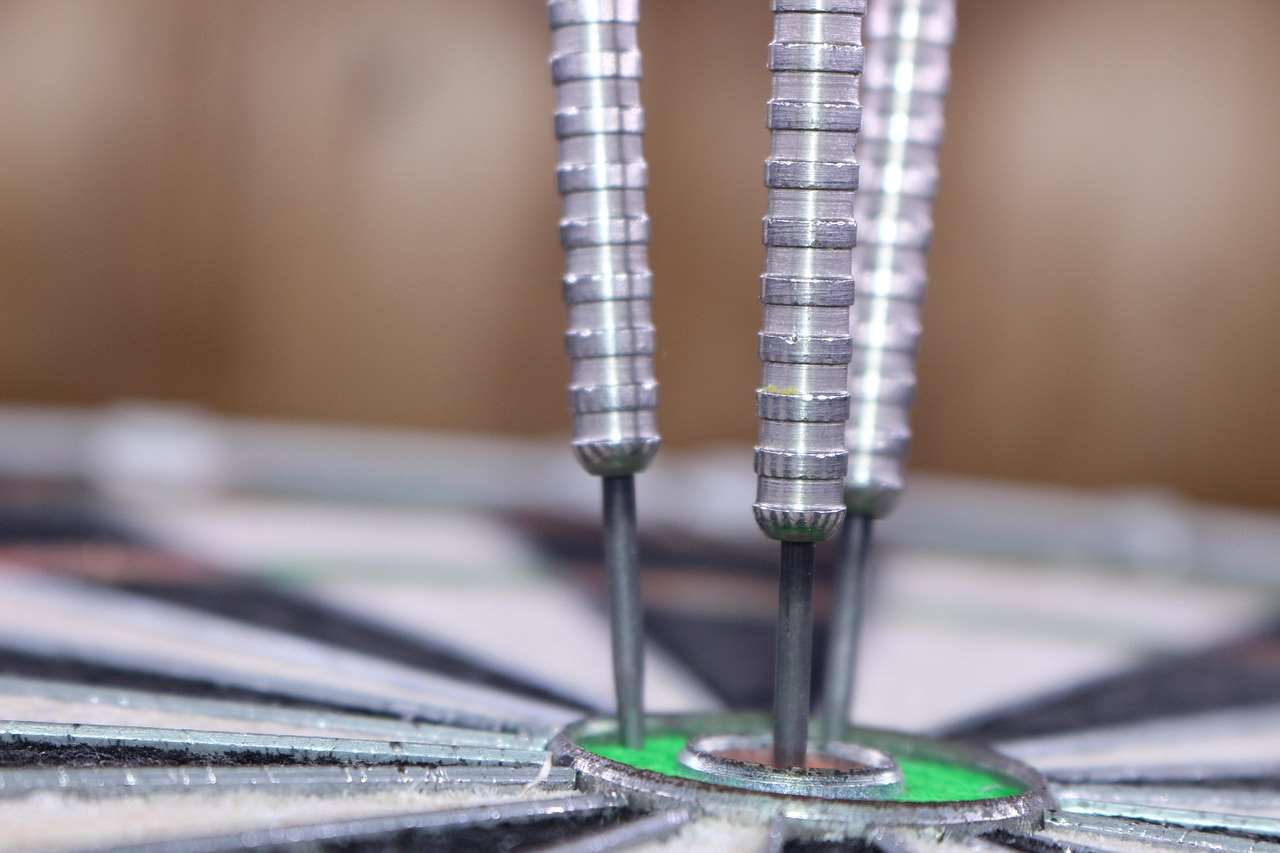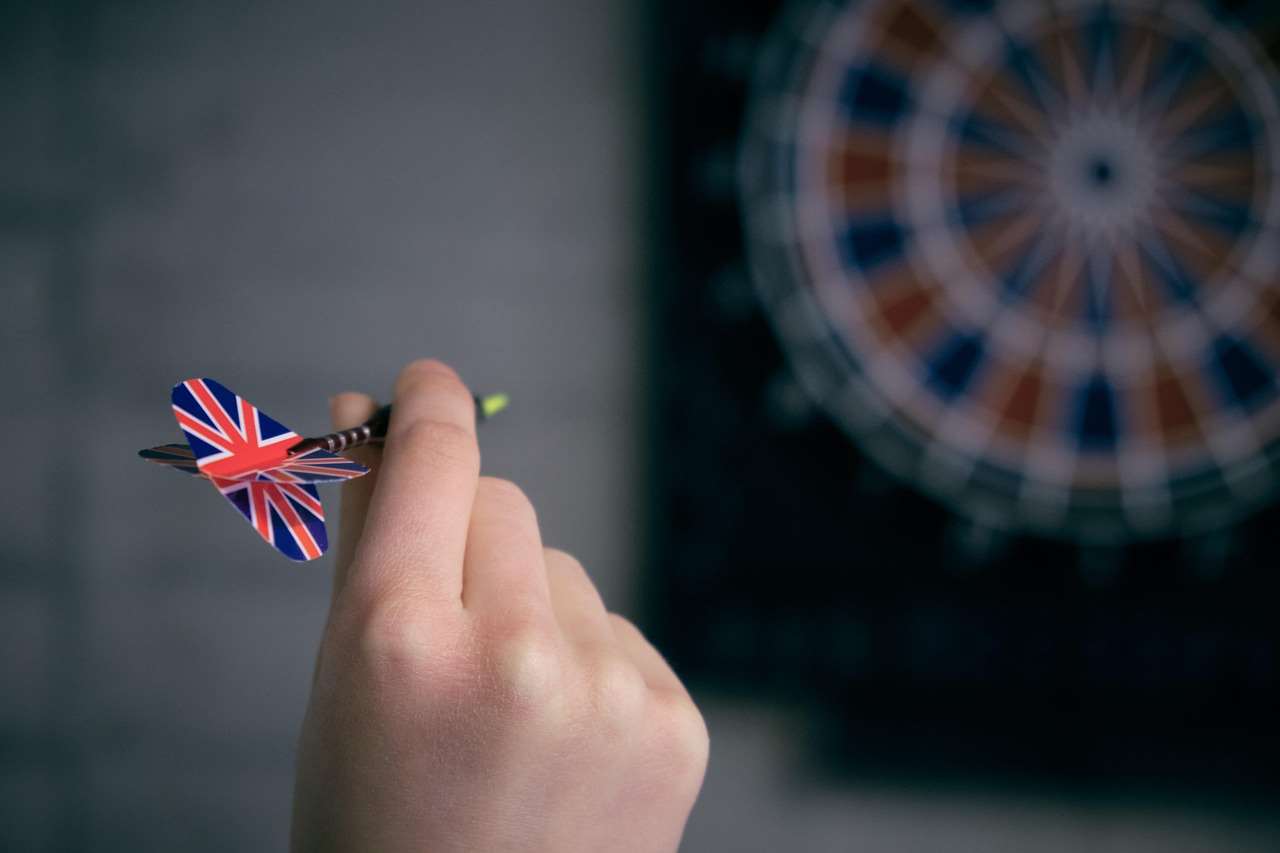Winning in team darts isn’t just about hitting trebles; mastering team darts psychological tactics is crucial for disrupting opponents and boosting team morale. This article explores the key psychological strategies that give teams a competitive edge, from pre-match mind games to in-game pressure techniques.
⚠️ Still Using Pen & Paper (or a Chalkboard)?! ⚠️
Step into the future! The Dart Counter App handles all the scoring, suggests checkouts, and tracks your stats automatically. It's easier than you think!
Try the Smart Dart Counter App FREE!Ready for an upgrade? Click above!
Understanding the Psychology of Darts
Darts, at its core, is a mental game. While physical skill is undeniably important, the ability to maintain focus under pressure, manage emotions, and exploit an opponent’s weaknesses can often be the deciding factor. This is especially true in team darts psychological tactics, where the dynamics of a team environment add another layer of complexity.

Understanding the psychological factors that influence performance is the first step towards implementing effective strategies. These factors include:
- Anxiety and Stress: The pressure of competition can lead to anxiety, which can negatively impact focus and coordination.
- Confidence: A confident player is more likely to perform at their best.
- Focus and Concentration: The ability to block out distractions and maintain focus on the target is essential.
- Emotional Regulation: Managing emotions, both positive and negative, is crucial for maintaining composure under pressure.
The Impact of Team Dynamics
In team darts, the dynamics between players can significantly impact the overall psychological environment. A supportive and encouraging team can boost confidence and reduce anxiety, while a dysfunctional team can create tension and undermine performance. Therefore, effective team building strategies are vital.
Pre-Match Psychological Warfare
The psychological battle often begins long before the first dart is thrown. Pre-match mind games can be used to unsettle opponents and gain a psychological advantage. These tactics are most effective when subtle and aimed at exploiting perceived weaknesses. Understanding opponent analysis is key here.
Strategic Communication and Body Language
The way a team presents itself before a match can send a powerful message. Confident body language, unwavering eye contact, and well-timed comments can create an impression of strength and determination. Conversely, appearing nervous or uncertain can signal vulnerability. Think of it as a strategic element of darts games before 501 invented, where every move counts, even those before the game begins!
Carefully consider the use of:
- Confident Posture: Standing tall and maintaining eye contact conveys confidence.
- Positive Self-Talk: Reassuring oneself and teammates can boost morale.
- Controlled Emotions: Avoiding visible signs of nervousness or anxiety.
Creating an Aura of Invincibility
Teams can create an aura of invincibility by emphasizing their strengths, downplaying their weaknesses, and projecting an image of unwavering belief in their ability to win. This can be achieved through carefully crafted statements, strategic use of social media, and a consistent display of confidence. This helps in managing expectations as well.
In-Game Psychological Tactics
Once the match begins, the psychological battle intensifies. Effective in-game team darts psychological tactics involve disrupting opponents’ focus, maintaining momentum, and exploiting psychological vulnerabilities. This requires keen observation and adaptability.

Disrupting Opponent’s Focus
One common tactic is to subtly disrupt an opponent’s focus. This can be achieved through seemingly innocuous actions, such as:
- Strategic Pauses: Taking a moment to compose oneself before throwing, especially after an opponent scores well.
- Controlled Movements: Subtle movements or sounds that can distract the opponent without being overtly disruptive.
- Targeted Comments: Carefully chosen words aimed at exploiting an opponent’s insecurities or weaknesses.
However, it’s important to note that these tactics must be used ethically and within the bounds of good sportsmanship. Excessive or disruptive behavior can be penalized and can ultimately backfire. Understanding the etiquette in darts is vital.
Maintaining Momentum and Team Morale
Maintaining momentum is crucial for keeping the psychological advantage. When a team is on a roll, it’s important to capitalize on that momentum by celebrating successes, encouraging teammates, and projecting an image of unwavering confidence. Conversely, when a team is struggling, it’s important to stay positive, offer support, and avoid negativity. This is where strong team building strategies come into play.
Strategies for maintaining momentum include:
- Positive Reinforcement: Praising teammates for good throws and offering encouragement after missed opportunities.
- Strategic Timeouts: Using timeouts to regroup, refocus, and re-energize the team.
- Visual Cues: Using gestures or expressions to convey confidence and support.

Exploiting Psychological Vulnerabilities
Every player has psychological vulnerabilities that can be exploited. These vulnerabilities might include a fear of failure, a tendency to choke under pressure, or a lack of confidence in certain areas of their game. By identifying and exploiting these vulnerabilities, a team can gain a significant psychological advantage. Learning about rare dart game instructions might provide insight into unexpected weaknesses.
Identifying vulnerabilities involves:
- Observing Opponent’s Behavior: Paying attention to their reactions to pressure, their body language, and their communication style.
- Analyzing Past Performances: Reviewing their previous matches to identify patterns of behavior and potential weaknesses.
- Gathering Information: Talking to people who know the opponent well to gain insights into their personality and psychological makeup.
Once a vulnerability has been identified, it can be exploited through a variety of tactics, such as:
- Targeted Comments: Making subtle remarks that play on the opponent’s insecurities or fears.
- Strategic Challenges: Encouraging the opponent to take on challenges that they are likely to struggle with.
- Creating Pressure: Increasing the stakes and putting the opponent under pressure to perform.
The Role of the Captain
The team captain plays a critical role in managing the psychological dynamics of the team. The captain is responsible for setting the tone, providing leadership, and ensuring that the team remains focused and motivated. They are the face of team darts psychological tactics in many respects.
Leadership and Motivation
The captain must be a strong leader who can inspire and motivate the team. This involves setting high standards, providing constructive feedback, and creating a positive and supportive environment. The captain should also be able to manage conflicts and resolve disputes effectively. This is connected to history of darts games uk and the important role of team leaders from the very beginnings of the sport.
Managing Pressure and Expectations
The captain is also responsible for managing pressure and expectations. This involves setting realistic goals, providing reassurance when the team is struggling, and celebrating successes appropriately. The captain should also be able to shield the team from external pressures, such as media scrutiny or fan criticism. It’s all part of good expectation management.

Communication and Support
Effective communication is essential for building trust and rapport within the team. The captain should be able to communicate clearly and concisely, listen attentively to teammates’ concerns, and provide support and encouragement when needed. They must also be able to facilitate communication between team members and ensure that everyone is on the same page.
Open and honest communication is part of the foundation for any successful team using team darts psychological tactics.
Ethical Considerations
While psychological tactics can be effective, it’s important to use them ethically and within the bounds of good sportsmanship. Tactics that are overly aggressive, disrespectful, or disruptive can backfire and damage the team’s reputation. A strong code of etiquette in darts is essential.
It’s important to:
- Avoid Personal Attacks: Focus on the game and avoid making personal comments or insults.
- Respect the Opponent: Treat the opponent with respect, even when using psychological tactics.
- Play Fair: Avoid cheating or engaging in any other unethical behavior.
Putting it All Together: A Winning Psychological Strategy
Developing a winning psychological strategy involves a comprehensive approach that addresses all aspects of the game, from pre-match preparation to in-game tactics. By understanding the psychological factors that influence performance, implementing effective strategies, and maintaining ethical standards, teams can gain a significant competitive advantage. This is where knowledge of old dart games rules might even provide an advantage!

A well-rounded psychological strategy should include:
- Pre-Match Preparation: Developing a pre-match routine that includes visualization, positive self-talk, and relaxation techniques.
- In-Game Tactics: Implementing strategies for disrupting opponents’ focus, maintaining momentum, and exploiting psychological vulnerabilities.
- Team Dynamics: Fostering a positive and supportive team environment that promotes confidence and reduces anxiety.
- Ethical Considerations: Adhering to ethical standards and avoiding tactics that are overly aggressive, disrespectful, or disruptive.
Conclusion
Mastering team darts psychological tactics is just as vital as perfecting your throw. By understanding the psychology of the game, implementing strategic pre-match and in-game tactics, and fostering a supportive team environment, you can significantly increase your team’s chances of success. Remember to balance psychological warfare with ethical considerations and good sportsmanship. Now, take these strategies and dominate the oche! Ready to sharpen your skills? Explore other fun darts variants to further enhance your game!
Hi, I’m Dieter, and I created Dartcounter (Dartcounterapp.com). My motivation wasn’t being a darts expert – quite the opposite! When I first started playing, I loved the game but found keeping accurate scores and tracking stats difficult and distracting.
I figured I couldn’t be the only one struggling with this. So, I decided to build a solution: an easy-to-use application that everyone, no matter their experience level, could use to manage scoring effortlessly.
My goal for Dartcounter was simple: let the app handle the numbers – the scoring, the averages, the stats, even checkout suggestions – so players could focus purely on their throw and enjoying the game. It began as a way to solve my own beginner’s problem, and I’m thrilled it has grown into a helpful tool for the wider darts community.